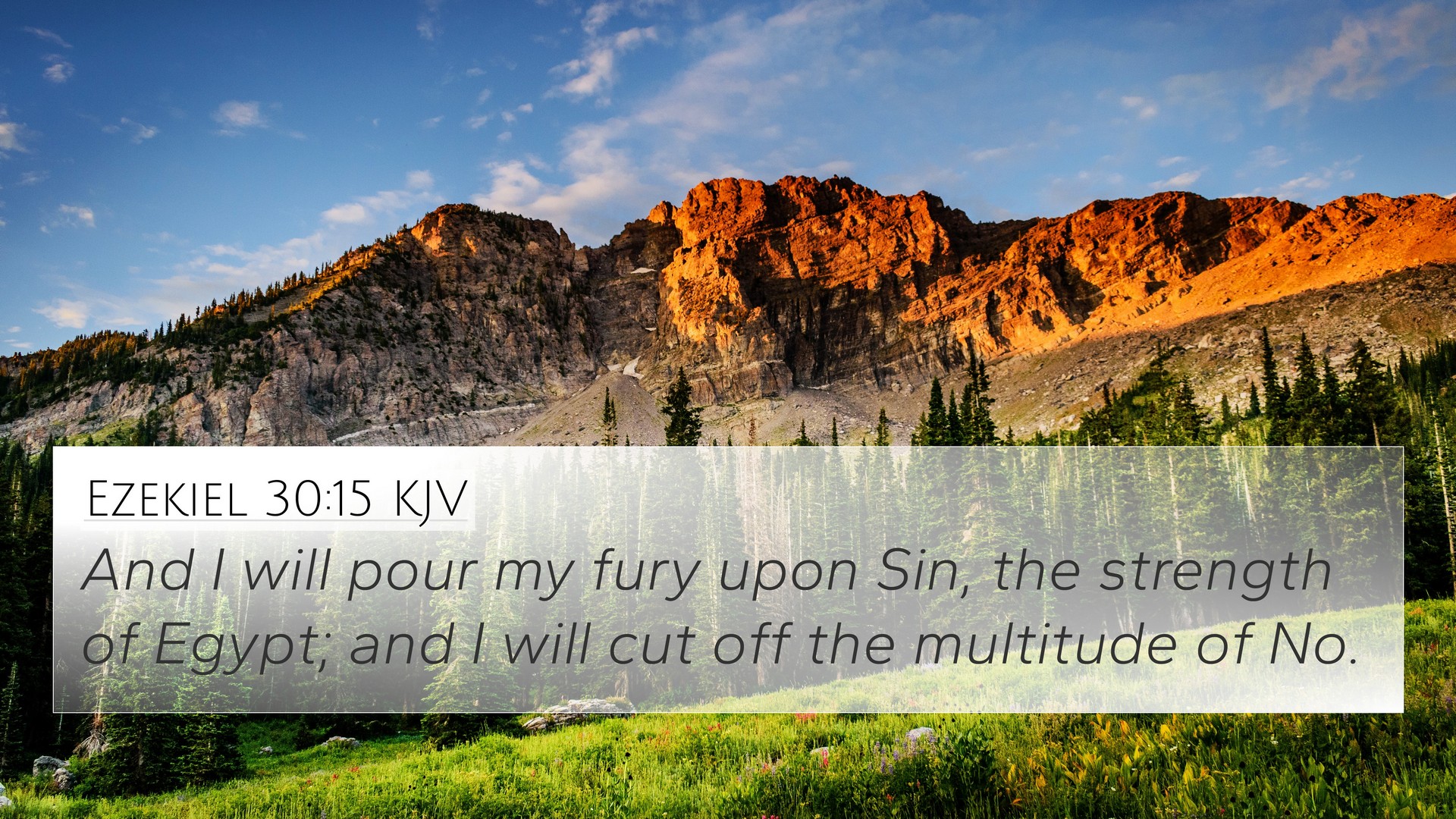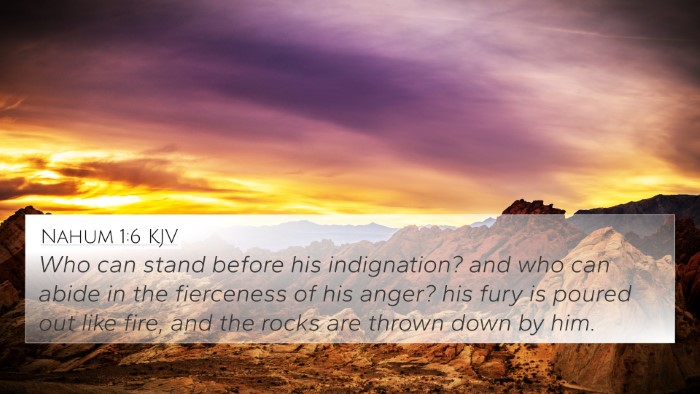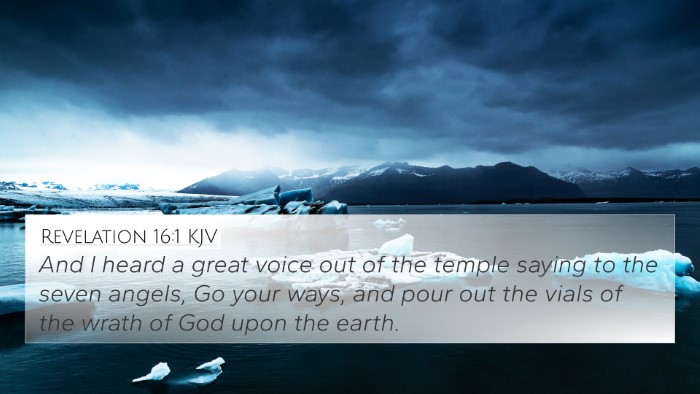Ezekiel 30:15 - Understanding the Verse
Ezekiel 30:15 reads: "And I will pour out my fury upon Sin, the strength of Egypt; and I will cut off the multitude of No." This passage carries profound meaning within the context of prophetic literature, emphasizing God's divine judgment upon Egypt.
Context and Background
The Book of Ezekiel is a series of prophecies delivered through the prophet Ezekiel during the Babylonian exile. The chapter discusses the fate of Egypt, a nation that often opposed Israel and turned to idolatry. As various commentaries elaborate, Ezekiel’s prophecy serves as a warning of impending judgment against nations that oppose God’s plans.
Commentary Insights
-
Matthew Henry:
Henry notes that God’s fury is directed towards "Sin," representing a city or possibly a deity associated with Egyptian idolatry. This judgment illustrates the Lord’s sovereignty over nations—both in deliverance and punishment.
-
Albert Barnes:
Barnes elaborates on the "multitude of No," identifying it with Thebes, a city of allure and strength in Egypt. His analysis highlights the contrast between earthly might and divine judgment, emphasizing that human power will not stand against God’s will.
-
Adam Clarke:
Clarke draws attention to the significance of God pouring out His fury, suggesting a complete and relentless divine response to the ongoing idolatry and rebellion of Egypt. Clarke’s commentary helps readers understand that this is not merely a historical declaration but also a theological statement about God’s nature in dealing with sin.
Thematic Connections
This verse is part of a larger narrative concerning divine retribution and the themes of sin and judgment that are prevalent throughout Scripture. The emphasis on "fury" and the removal of strength from nations resonates with various Biblical texts.
Cross-References
Several Bible verses relate to the themes present in Ezekiel 30:15:
- Isaiah 19:1: "The burden of Egypt. Behold, the Lord rideth upon a swift cloud, and shall come into Egypt; and the idols of Egypt shall be moved at his presence, and the heart of Egypt shall melt in the midst of it."
- Ezekiel 24:8: "That it might cause fury to come up to take vengeance; I have set her blood upon the top of a rock, that it should not be covered."
- Jeremiah 46:25: "The Lord of hosts, the God of Israel, saith; Behold, I will punish the multitude of No, and Pharaoh, and Egypt with their gods and their kings; even Pharaoh, and all them that trust in him."
- Nahum 3:8: "Art thou better than populous No, that was situate among the rivers, that had the waters round about it, whose rampart was the sea, and her wall was from the sea?"
- Revelation 16:19: "And the great city was divided into three parts, and the cities of the nations fell: and great Babylon came in remembrance before God, to give unto her the cup of the wine of the fierceness of his wrath."
- Psalms 78:49: "He cast upon them the fierceness of his anger, wrath, and indignation, and trouble, by sending evil angels among them."
- Micah 5:15: "And I will execute vengeance in anger and fury upon the heathen, such as they have not heard."
Importance of Cross-Referencing
The practice of cross-referencing Biblical texts provides deeper insights into the themes of Scripture. By examining connections between verses, one can identify a cohesive narrative that strengthens understanding of God's character and His dealings with humanity.
Using tools such as a Bible concordance or a Bible cross-reference guide enhances study by revealing relationships between verses across both the Old and New Testaments.
Applications for Study
- Comparative Bible Verse Analysis: Studying Ezekiel 30:15 alongside other prophetic texts can enrich the reader’s understanding of prophecy.
- Thematic Bible Verse Connections: Identifying themes such as judgment, idolatry, and divine sovereignty across various books of the Bible promotes a comprehensive view of God's message.
- Cross-Referencing Psalms with New Testament Teachings: Investigating how Psalms express themes of repentance and God’s mercy in light of New Testament teachings can provide clarity on God's covenant with humanity.
Conclusion
In conclusion, Ezekiel 30:15 is a powerful testament to the nature of God’s judgment against unfaithfulness and rebellion. This verse, when understood through the lens of scriptural cross-referencing, reveals a fuller picture of God’s intention for both nations and individuals to turn from sin. Engaging in this type of cross-referencing Bible study not only enhances personal understanding but also prepares one for effective sermon preparation and teaching.





